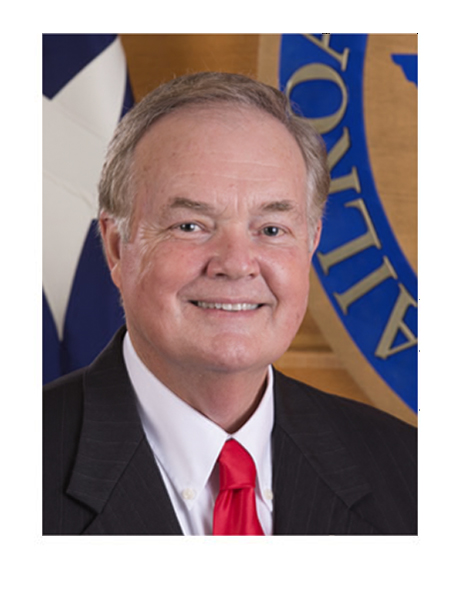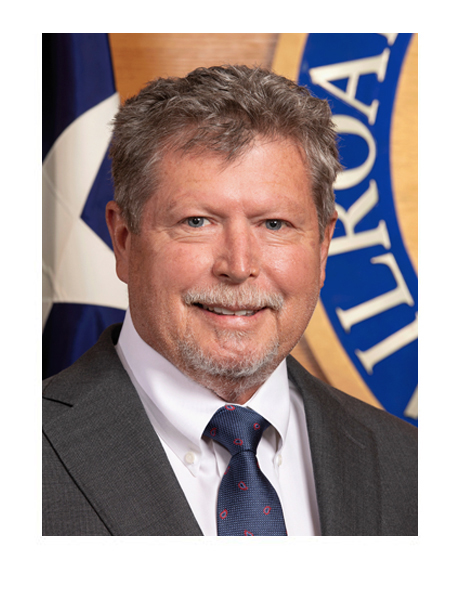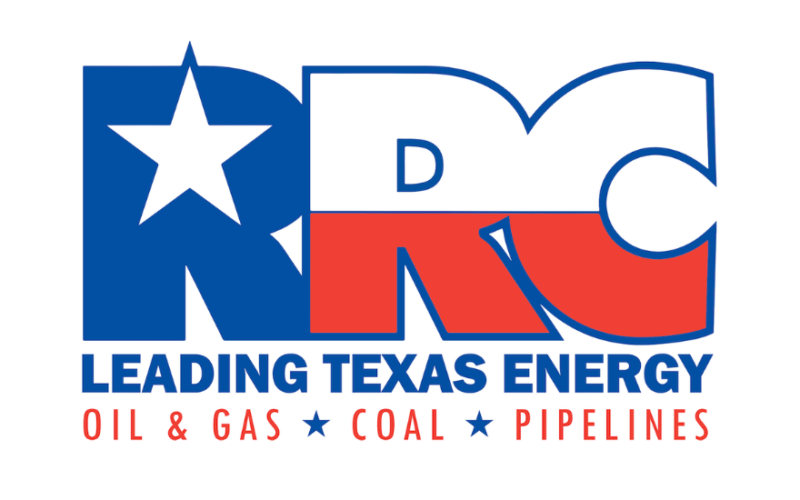Article Contents Show
Overview
The Railroad Commission of Texas (RRT) is a state agency that regulates the oil and gas industry, gas utilities, pipeline safety, and coal mining.
The RRC has a threefold mission involving stewardship of the environment, personal and community safety, and economic development.
Despite its name, the agency does not regulate railroads. When it was created in 1891, it did regulate railroads, but its duties have since evolved.
The RRC sets certain regulatory fees, such as fees for permits for pipelines.
The RRC has the authority to establish market-based rates for oil and gas pipelines and ensures that natural gas shippers aren’t discriminated against by pipeline providers.
The commission also has regulatory and enforcement responsibilities under federal law including the Surface Coal Mining Control and Reclamation Act, Safe Drinking Water Act, Pipeline Safety Acts, Resource Conservation Recovery Act, and Clean Water Act.
In case of violations of RRC rules or the law, the agency has the power to levy administrative penalties.
Structure of the Railroad Commission
The Railroad Commission of Texas is led by a three-member board elected in partisan statewide elections. These commissioners serve six-year, staggered terms. One commissioner position is on the ballot every two years.
The commissioners choose their own chairperson to lead the board.
By law, the three-member commission must follow policies that clearly separate its “policy-making responsibilities” from the “management responsibilities” of the staff of the commission.
The agency employs about 800 staff and has its headquarters in Austin and 12 district offices located throughout the state. The RRC has several divisions including for surface mining and reclamation, oversight and safety, oil and gas, and various administrative divisions.
Current Commissioners



| Commissioner | Party | Assumed office | Next election |
|---|---|---|---|
| Wayne Christian, Chairman | Republican | January 9, 2017 | 2028 |
| Christi Craddick | Republican | December 12, 2012 | 2024 |
| Jim Wright | Republican | January 1, 2021 | 2026 |
Divisions of the Railroad Commission
Oil and Gas Division
The Oil and Gas Division regulates the exploration, production, and transportation of oil and natural gas in Texas. Its statutory role is to:
- prevent waste of the state’s natural resources,
- to protect the correlative rights of different interest owners,
- to prevent pollution, and
- to provide safety in matters such as hydrogen sulfide.
The division oversees oil and gas permitting, performs field inspections, and implements programs to remediate abandoned wells and sites.
Surface Mining and Reclamation Division
In 1975, the Texas Legislature gave the Railroad Commission jurisdiction to regulate surface mining for coal and uranium. Companies mining coal/lignite in Texas must have a commission permit and post a bond for each site they operate in the state.
Division field personnel make, at a minimum, monthly visits to mine sites, checking for compliance with coal mining regulations.
The Surface Mining and Reclamation Division also administers a program to reclaim dangerous or environmentally harmful abandoned mine sites that were mined prior to the implementation of a federal surface mining law in 1975.
Oversight and Safety Division
The Oversight and Safety Division has responsibility for Alternative Fuels, Gas Services and Pipeline Safety.
The Alternative Fuels Safety department enforces laws and regulations on the safe transportation, storage, distribution of liquefied petroleum gas (LPG) (commonly referred to as propane); compressed natural gas (CNG) and liquefied natural gas (LNG).
The Gas Services department oversees natural gas utility rates. The department’s Market Oversight section participates in contested rate determinations, collects and publishes natural gas utility tariffs, and resolves consumer complaints and industry complaints.
The department’s Utility Audit section administers the gas utility tax and audits natural gas utilities to ensure the proper computation and billing of authorized rates.
The Pipeline Safety department regulate the safety of intrastate gas, hazardous liquid and CO2 pipelines in the state. The department conducts inspections of pipettes and investigates accidents and complaints involving pipeline facilities.

Budget
The Texas Railroad Commission had a budget of $123.7 million in fiscal year 2023, according to the Appropriations Act. The commission’s sources of funds included $55.5 million from the General Revenue Fund, $60 million from a dedicated Oil and Gas Regulation Cleanup Account, $6.9 million in federal funds, and $1.4 million in appropriated receipts.
The Texas Railroad Commission has an authorized staffing level of 871.
Issues & Controversies
The Texas Railroad Commission (RRC) has long faced criticism for its close ties to the oil and gas industry, which it is tasked with regulating. Watchdog groups argue that the commission operates as a “captive agency,” prioritizing industry interests over public accountability.
Conflicts of Interest
In a 2021 report, Texans For Public Justice and Commission Shift scrutinized the commission’s regulatory approach, highlighting potential conflicts of interest involving Commissioner Christi Craddick. The report noted that Craddick holds financial stakes in oil and gas companies that do business with the RRC, raising ethical concerns. It also pointed to her deep political ties—her father, Tom Craddick, has been a Texas legislator since 1969 and previously served as Speaker of the House. Since 2009, he has sat on the House Energy Resources Committee, which oversees the Railroad Commission.
Financial entanglements between the Craddicks have drawn further scrutiny. Before Christi Craddick’s 2012 election to the commission, her father’s political committees paid her over $1 million, while he personally contributed more than $600,000 to her campaign. Additionally, she reported earning up to $680,000 in lobby income during that time—figures that critics argue blur the lines between public service and private gain.
Ethical oversight of the commission has also come into question. The RRC’s recusal policy depends on a vague definition of “personal or private interest,” making enforcement difficult. Moreover, the policy requires action from the Texas Attorney General to be enforced, a hurdle that watchdogs say undermines accountability. Reform advocates argue that stricter ethical guidelines, increased transparency, and stronger enforcement mechanisms are necessary to restore public trust in the commission’s regulatory role.
Inaction on Environmental and Safety Concerns
The RRC has been criticized for failing to adequately address environmental hazards and public safety risks linked to oil and gas operations. The commission has been accused of lax enforcement of regulations concerning pollution, flaring, and wastewater disposal.
For example, environmental advocates have pointed to the agency’s slow response to the growing problem of orphaned wells—abandoned drilling sites that can leak methane and contaminate groundwater. While the commission has received federal funding to plug these wells, critics argue that it has failed to hold operators accountable for cleaning up their own sites.
Additionally, the RRC has been blamed for downplaying the role of oil and gas activity in the rising number of induced earthquakes in Texas. Studies have linked wastewater injection from fracking operations to seismic activity, but the commission has hesitated to impose restrictions on the industry.
Response to Winter Storm Uri
The commission faced widespread backlash following Winter Storm Uri in February 2021, which caused a massive power crisis in Texas. The RRC was criticized for failing to require natural gas producers to winterize their infrastructure, despite past warnings that cold weather could disrupt supply. During the storm, gas production plummeted, worsening electricity outages and leaving millions of Texans without heat.
After the crisis, the commission’s response was seen as inadequate. Rather than implementing stricter regulations on natural gas infrastructure, the RRC allowed companies to opt out of weatherization requirements by paying a small fee. Critics argued that this approach prioritized industry profits over grid reliability, leaving Texas vulnerable to future extreme weather events.
Industry Influence in Elections
The RRC’s election system has also been a source of controversy. Commissioners are elected through statewide races, which are heavily funded by the oil and gas industry. Unlike other regulatory agencies, which prohibit or limit donations from industries they oversee, the RRC allows commissioners to accept large campaign contributions from energy companies and executives. This has led to accusations that the commission operates with an inherent bias toward industry interests.
In recent election cycles, RRC candidates have raised millions of dollars from oil and gas donors, with some commissioners receiving the majority of their campaign funds from the very companies they regulate. Reform advocates argue that Texas should adopt stronger campaign finance restrictions to reduce industry influence and ensure the commission serves the public interest.
Calls for Reform
Critics from across the political spectrum have called for major reforms to the Railroad Commission. Some have proposed renaming the agency to more accurately reflect its role in regulating oil and gas, while others have pushed for stronger ethics rules, increased transparency, and stricter environmental enforcement. Despite mounting pressure, significant structural changes to the commission remain unlikely.
FAQ
The Railroad Commission of Texas hasn’t regulated railroads since 2005 when its rail safety division was transferred to the Texas Department of Transportation. Long before that, however, its focus had shifted toward the oil and gas industry, which it began regulating in 1917.
Some have said that it would take a constitutional amendment to change the name of the Railroad Commission because it is mentioned by name in the Texas Constitution. This would require a vote of two-thirds of lawmakers in each chamber and approval by the voters.
However, the Sunset Advisory Commission concluded in a 2017 review, “Changing the agency’s name does not require a constitutional amendment. The constitutional provision mentioning a Railroad Commission is permissive.”
If, however, the Legislature changed the name, “it would no longer be the railroad commission” and candidates for commissioner would no longer have to be elected in the manner prescribed by the constitution.


